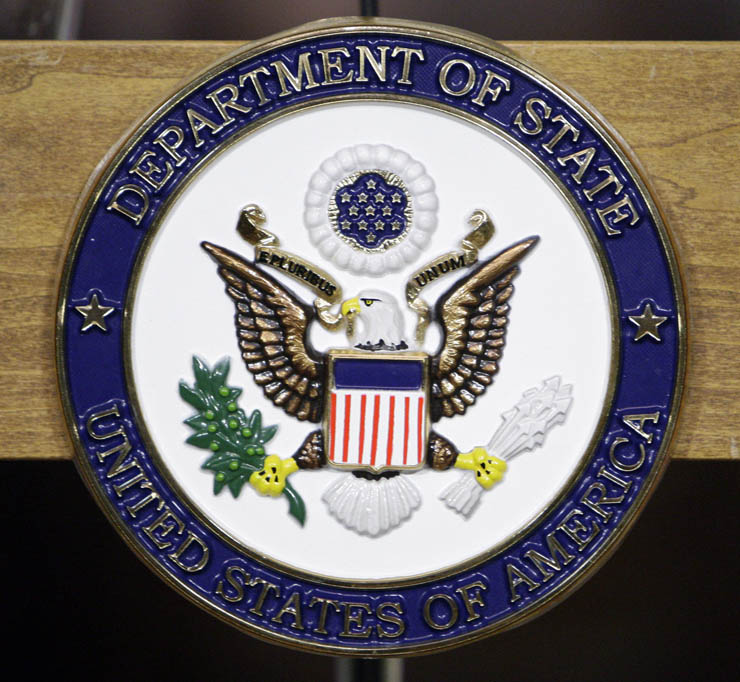Renouncing your U.S. citizenship will set you back a cool $2,350(US) starting Sept. 6, when the fee will more than quadruple – up from $450.

The State Department, which announced the change this week, claims the new fee is the real cost of processing an application to lose citizenship.
“Demand for the service has increased dramatically, consuming far more consular officer time and resources,” Under Secretary of State Patrick Kennedy wrote. “Documenting a U.S. citizen’s renunciation of citizenship is extremely costly, requiring American consular officers overseas to spend substantial amounts of time to accept, process, and adjudicate cases.
“The Department believes there is no public benefit or other reason for setting this fee below cost.”
That’s a policy change from 2010, when the State Department explained it had decided to set the $450 fee lower than the cost of handling a renunciation “in order to lessen the impact on those who need this service and not discourage the utilization of the service, a development the Department feels would be detrimental to national interests.”
In the latest memo, Kennedy describes the process as involving a “minimum of two intensive interviews.” That’s not what Patricia Moon went through when she renounced her citizenship at the Toronto consulate in 2012.
“The questions are minimal and I didn’t spend more than 15 minutes at the window either time. It’s not intensive. They ask you: ‘Are you aware of the ramifications of your actions?” And ‘Are you doing this of your own accord?'”

Get weekly money news
The Toronto consulate has since switched to a one-interview system. In 2011, officials there held the first meeting in a group format to cope with demand.
- Most Canadians now want early election as Trudeau support drops again: poll
- NDP will vote to topple Trudeau and propose confidence vote, Singh says
- This Canadian is his school’s first medical student in a wheelchair. He’s thinking big
- National Bank gets final approval for Canadian Western Bank takeover
Global News reported that the waiting list to renounce U.S. citizenship at the Toronto consulate stretched into late January of 2015. The backlog swelled after Ottawa signed a deal obliging Canadian banks to give the personal information of American clients to the IRS.
But the memo suggests the State Department expects applications to drop after the fee is implemented: to about 2,700 from the current 3,000 a year.
“We can’t speculate on the reasons potential renunciants choose to renounce citizenship,” a department spokesperson said in an email. “We can’t speculate on whether the backlog for renunciation appointments will ease” as a result of the fee increase.”
A department spokesperson said the fee hike is not meant as a deterrent.
READ MORE: How to get rid of U.S. citizenship
“It’s supposed to be a cost recovery change, and not a tax or revenue generator,” said Toronto-based cross-border tax accountant Kevyn Nightingale, who specializes in tax advice for people giving up U.S. citizenship.
“Having watched the process with so many of my clients, I have trouble believing that it really costs $2,300 apiece.”
The notice published this week estimates consular officers’ time at US$135 an hour, Nightingale points out.
“That means that they feel they’ve got almost 20 hours for each person who is expatriating, and that seems like a lot of time to process the paperwork. I have trouble believing that it’s 20 hours of time. This is, like most government fees, an arbitrary amount. I don’t think you can say much more about it.”
But the change isn’t so arbitrary for the people who’d have to pay it.
One elderly woman in Southwestern Ontario – who wouldn’t give her name because she’s “terrified” of being tracked by the IRS – says the new fee puts renouncing U.S. citizenship “totally out of reach”.
Originally from Boston, she immigrated to Canada in the 1970s and became a dual citizen in the 1990s.
A south-central Ontario man scheduled to get rid of his U.S. citizenship in January says he’ll come up with the extra money but is “outraged”.
Born in New Jersey to Canadian parents, he came to Canada as a toddler. He also asked not to be identified, saying he’d “rather not bring that trouble on myself and my family”.
“I think it incredibly exploitative,” he said. “It’s a huge sum of money to pay for an internal U.S. process that none of us asked for. I’ve never chosen U.S. citizenship, I’ve never taken advantage of U.S. citizenship – until three years ago I didn’t even know that I had U.S. citizenship.”








Comments